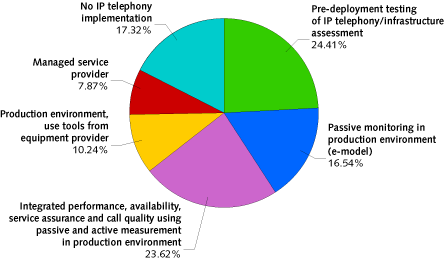Cisco VoIP management guide: Cisco requires proactive management
Managing Cisco VoIP solutions means network managers must rely on credible, experienced vendors to some extent. Fortunately, many vendors have emerged as trusted, viable partners that can offer an end-to-end management solution for Cisco VoIP environments. With the selection of vendors provided network managers should feel confident in successfully deploying and experiencing the value and benefits of IP telephony.
According to a recent Yankee Group Survey, less than 50% of enterprises that have deployed VoIP currently use a comprehensive management solution. At the same time, network managers often demonstrate a lack of confidence in the technology and its promised benefits. With the industry moving beyond VoIP and more toward unified communications, network managers must implement a comprehensive VoIP management strategy, as this will be the key to obtaining the value and minimizing the risk of enterprise wide scale deployment.
Many network managers who are deploying Cisco IP telephony will continue to lack the confidence until they adopt a more complete VoIP management solution from a credible, experienced vendor. Fortunately, many vendors have emerged as trusted, viable partners that can offer an end-to-end management solution for Cisco VoIP environments. With the selection of vendors provided network managers should feel confident in successfully deploying and experiencing the value and benefits of IP telephony.
Exhibit 1. Adoption of VoIP management solutions

The uncertainty and cautiousness generated from network managers is one of the things holding back enterprise-wide deployments. This insecurity stems from the perceived immaturity of VoIP management tools and the strategies to deploy them. Survey data and anecdotal interviews have shown that telecom and network managers tend to get more comfortable as they move to the production stage. However, the confidence during early stages of testing is a key and having the right management tools in place will help to alleviate some of the uncertainty. It will provide network managers with better insight into the environment and more predictable performance in production environments.
A comprehensive management strategy based on a lifecycle approach is strongly recommended. The VoIP management lifecycle addresses each stage of an enterprise Cisco VoIP deployment and the required management tasks. Following this approach will give network managers the confidence needed during the early stages and will ultimately deploy VoIP faster and create a more manageable enterprise VoIP platform.
Return to Cisco VoIP management guide.








